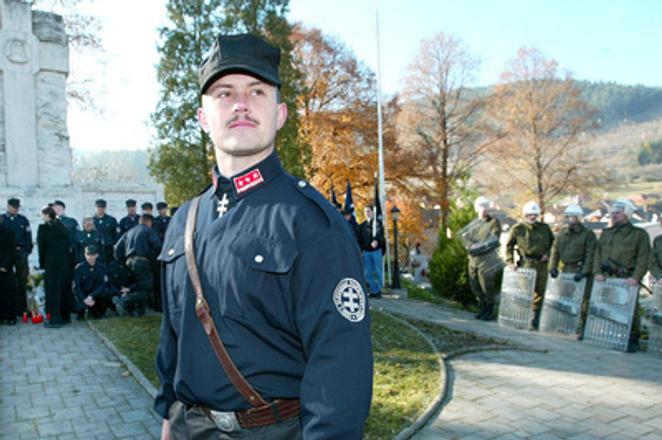Though reasonable people agree that Marian Kotleba’s ĽSNS party is bad for democracy and bad for Slovakia, it does not directly follow that banning the party – as the country’s prosecutor general has now set out to do – is good for democracy and good for Slovakia.
Putting legal specifics aside, and distasteful as certain kinds of speech can be, banning a political party is a limitation on free speech – a core principle of liberal democracy. At the same time, constitutions and other institutions are designed to channel political energy and limit the excesses of electoral politics – a core principle of constitutional democracy. A potential ban on a political party means these two principles clash.
More constitutional can be less democratic, and it is not clear that it always has the intended result. Perhaps the clearest historical case came with the rise of the Nazis in Germany. In the estimation of historian William Shirer, the Weimar Republic’s constitution in force from 1919 to 1933 was said to be “the most liberal and democratic document the 20th century had ever seen… which seemed to guarantee the working of an almost flawless democracy”.
In hindsight we know it did not end up this way, and there were also flaws that Hitler exploited to aid his rise, not least of which was Article 48 – which allowed him to declare a state of emergency and suspend civil liberties. As the chief Nazi propagandist Joseph Goebbels once said: “It will always remain one of the best jokes of democracy that it provided its mortal enemies with the means through which it was annihilated.”
However, the Nazi party was banned in Bavaria during the 1920s and their paramilitary unit the Sturmabteilung (SA) outlawed well into the 1930s throughout Germany – and yet they grew and gained power anyway. Furthermore, who is to say that a more thorough ban, and then a reconstituted Nazi party, would not have led to the same result, or helped generate even more public support? Certainly that is the exactly the case with Mr Kotleba, who had an earlier, marginal party banned in 2006, formed a new one and then was elected as a regional governor and saw his party enter parliament.
In the United States – admittedly not the best model for a healthy democracy at the moment – there is a particularly high legal bar for limiting speech, so much so that huge financial donations to political candidates are considered legally protected speech. Limiting speech requires that it present a “clear and present danger”. This is why the KKK is allowed to exist, though their members are arrested if they engage in violence. It also keeps them a fringe organization with marginal influence.
Like ĽSNS supporters, they have a right to be racist, but their rights end when they begin to impede on the rights of others. Banning the ĽSNS may well be a good idea, but someone still needs to beat Kotleba in November’s regional election.



 Marian Kotleba (source: Sme - Ján Krošlák)
Marian Kotleba (source: Sme - Ján Krošlák)